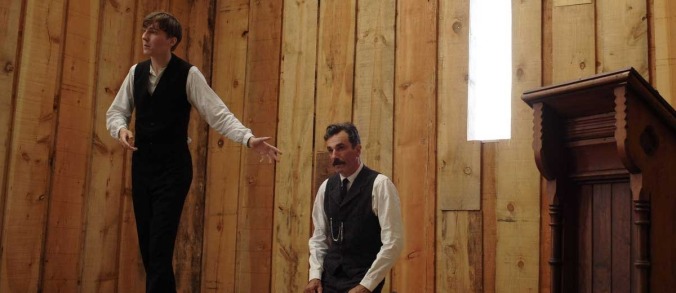- Paste |
- A.V. Club |
- Jezebel |
- Splinter |
- Wolfgang's

There are certain filmmakers—Martin Scorsese, Wes Anderson, Gus Van Sant—who possess such an inimitable visual style that even the most casual cinephile would recognize their influence. There are others, however, who are equally distinctive, but for ways that are harder to articulate. One of those is Paul Thomas Anderson, whose buzzed-about Phantom Thread comes out in limited release on Christmas, and a new video essay from Screenprism is here to illuminate just what it is about Anderson’s approach that distinguishes his films.
Probably the most obvious, and most discussed, aspect of Anderson’s films is his exploration of surrogate families, the bands of misfits who find refuge outside of their blood connections. Boogie Nights and Magnolia explore this via their massive ensembles, while The Master and Inherent Vice do it through more abstract means. His movies also generally explore broader changes in society that leave the characters “out of time,” which sort of turns them into stealth period pieces. Sure, they often take place in the past, but his use of music tends to unmoor it from the strictures of these eras.
The impact of religion is also a notable aspect of Anderson’s work. This one is an especially apt observation, as, despite the evangelical fire of There Will Be Blood’s Eli Sunday or the cult at the center of The Master, the films don’t center around religion so much as explore the impact and sense of self that tends to emerge from faith, no matter where it’s placed. You can muse upon how this all relates to Phantom Thread—which, surprise, is really good—when it comes out next week.
 Keep scrolling for more great stories from A.V. Club.
Keep scrolling for more great stories from A.V. Club.